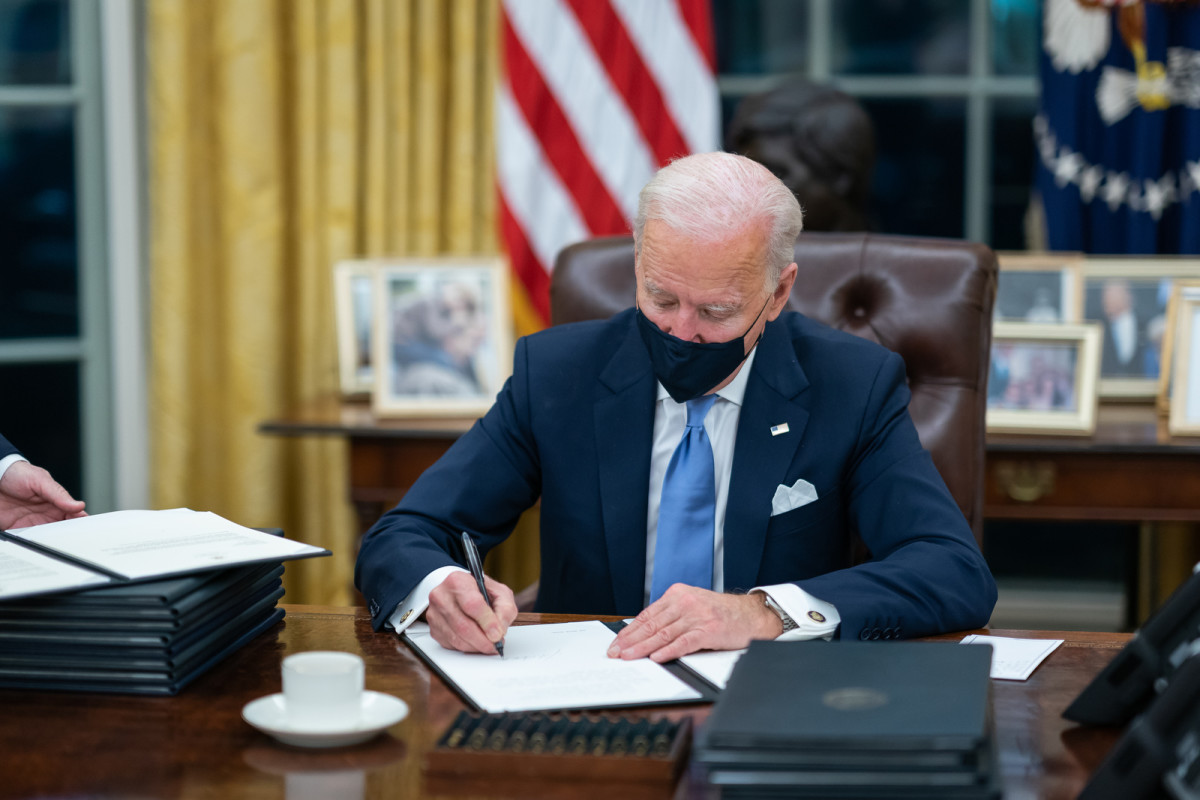Why Joe Biden Hates Bitcoin


Over the past four years, President Joe Biden has shown a clear reluctance to support Bitcoin and the cryptocurrency industry. This is evidenced by recent vetoes of important legislation and the administration’s broad stance. On May 31, Biden vetoed an important bill that would have allowed high-trust financial institutions to store bitcoin and other cryptocurrencies.
BREAKING NEWS: 🇺🇸 President Biden has vetoed legislation that would have allowed highly regulated financial companies to hold custody. #Bitcoin And cryptocurrency. pic.twitter.com/TMHavdWRx7
— Bitcoin Magazine (@BitcoinMagazine) May 31, 2024
The bill in question received bipartisan support in both the House and Senate. It aimed to further integrate Bitcoin into the mainstream financial system by providing a regulatory framework that would allow banks and other financial institutions to store digital assets safely. Supporters of the bill argue that such a framework would strengthen the security of spot Bitcoin ETF funds, foster innovation, and foster the growth of the Bitcoin industry by deploying honeypots of coins currently held by only a few institutions. He claimed it would help. But Biden’s veto reflects his administration’s lack of support for an industry in which the president has previously compared cryptocurrency traders to “wealthy tax evaders.”
The Biden administration also released a report attacking Bitcoin and proof-of-work mining and instead promoting central bank digital currencies (CBDCs), stating that “a U.S. CBDC has the potential to offer significant benefits.” Biden’s willingness to embrace a CBDC that would give the federal government full control of citizens’ finances further shows his true colors and reasons for not supporting Bitcoin.
Recently, Joe Biden’s Justice Department arrested the founder of Samourai Wallet, a popular privacy-focused Bitcoin mixing service, and charged him with money laundering. U.S. Senator Cynthia Lummis defended the Samurai founders, saying, “This position is contrary to existing Treasury guidance, common sense, and violates the rule of law.” Noted whistleblower Edward Snowden also commented on the arrest:
NEW: Edward Snowden on arrest by U.S. Department of Justice #Bitcoin Founder and CEO of mixing service Samourai Wallet pic.twitter.com/qmigHJzmZU
— Bitcoin Magazine (@BitcoinMagazine) April 24, 2024
Moreover, the Democratic Party has shown an overall reluctance to support Bitcoin-friendly legislation. Key figures such as Senator Elizabeth Warren have particularly spoken out against the cryptocurrency industry. Warren has frequently criticized cryptocurrencies for their environmental impact and regulatory issues, and she is “building an anti-crypto army” to address what she perceives as threats from the industry to financial stability and consumer protection. It was infamously revealed.
In contrast, former President Donald Trump recently embraced Bitcoin and cryptocurrencies. On June 1, 2024, Trump announced that his campaign would begin accepting Bitcoin payments over the Lightning Network, supported by OpenNode, a Bitcoin and Lightning Network infrastructure provider. Trump recently said, “I will ensure that the future of cryptocurrency and Bitcoin takes place in the United States,” adding, “I will support self-custody for 50 million cryptocurrency holders.” President Trump recently said, “I am very positive and open toward cryptocurrency companies,” and added, “Our country should become a leader in this field.” There is no second place.”
Despite the Democratic Party’s stance, the Bitcoin industry is becoming increasingly influential in American politics. Recent polls have shown that cryptocurrency voters are largely bipartisan and do not lean heavily toward either the Republican or Democratic parties. This demographic represents a significant and growing segment of the electorate, including over 50 million Bitcoin and cryptocurrency holders in the United States. As the 2024 presidential election approaches, Bitcoin policy is emerging as an important issue for candidates to address.
Political leaders’ evolving positions on Bitcoin and cryptocurrencies highlight the growing importance of these assets in shaping economic and regulatory policy. For Biden, his reluctance to embrace Bitcoin is alienating a significant portion of his voter base. Cryptocurrency advocates argue that a clear regulatory framework and mainstream acceptance of Bitcoin would spur economic growth, spur innovation and strengthen financial inclusion. But the Biden administration is focused on preventing that from happening.
The rise of Bitcoin introduced a new dynamic to the political landscape. Bitcoin operates in a bipartisan manner, appealing to individuals across the political spectrum, but this does not mean all politicians will embrace it. Joe Biden and the Democrats are turning a non-partisan technology into a partisan issue.
In conclusion, the Biden administration and the majority of Democrats prefer CBDCs over decentralized cryptocurrencies like Bitcoin. CBDC is more aligned with Biden and the Democratic Party than Bitcoin. Because Bitcoin is less attractive to them because it does not help them achieve their authoritarian goals.
As the 2024 presidential election approaches, the role of Bitcoin policy in shaping voter preferences and political strategies is becoming increasingly clear. With more than 50 million Bitcoin and cryptocurrency holders in the U.S., political leaders’ decisions regarding the digital asset will likely play a pivotal role in the upcoming election, which will increase the importance of Bitcoin in the broader economic and political landscape. This reflects that it is growing.



